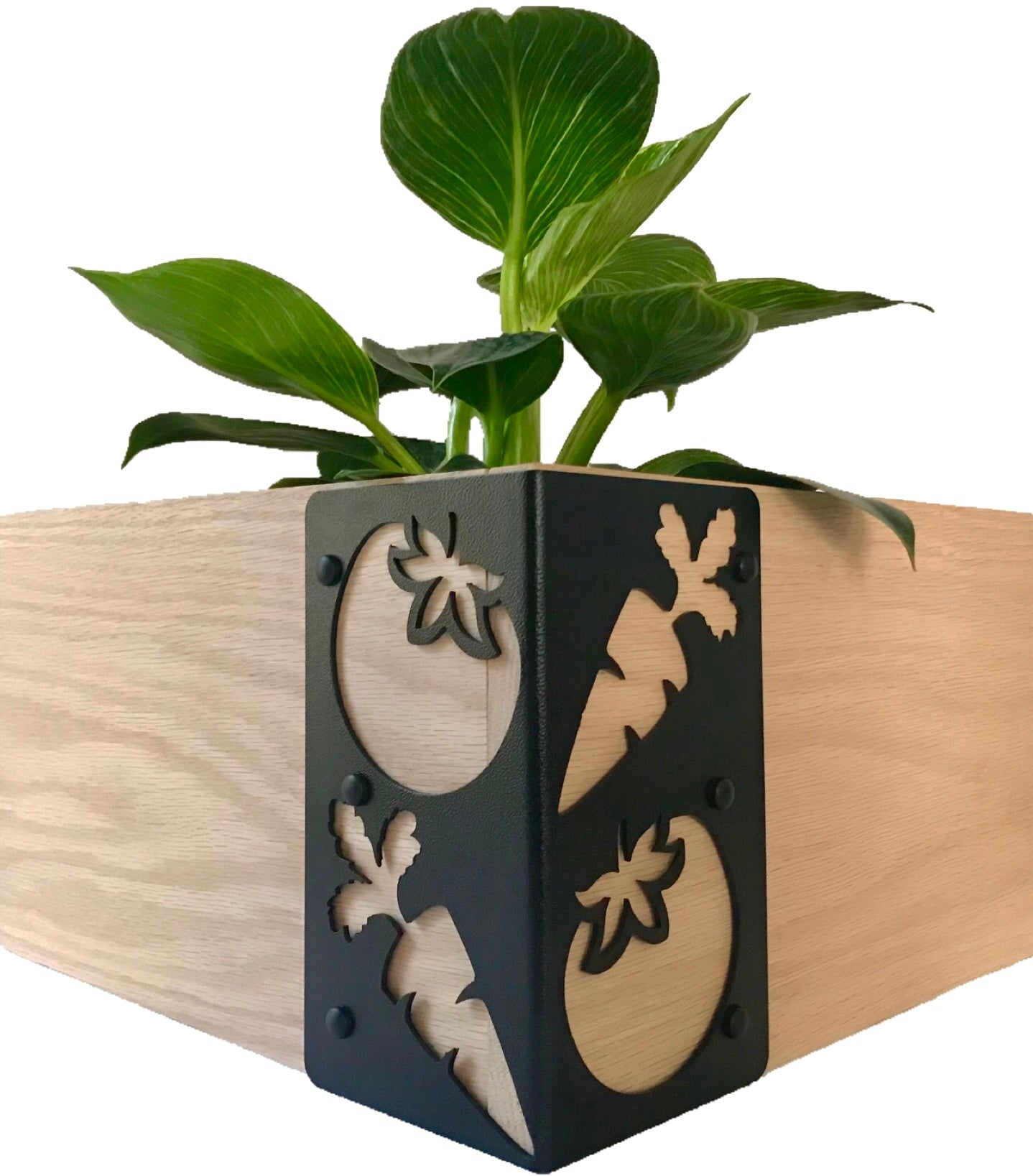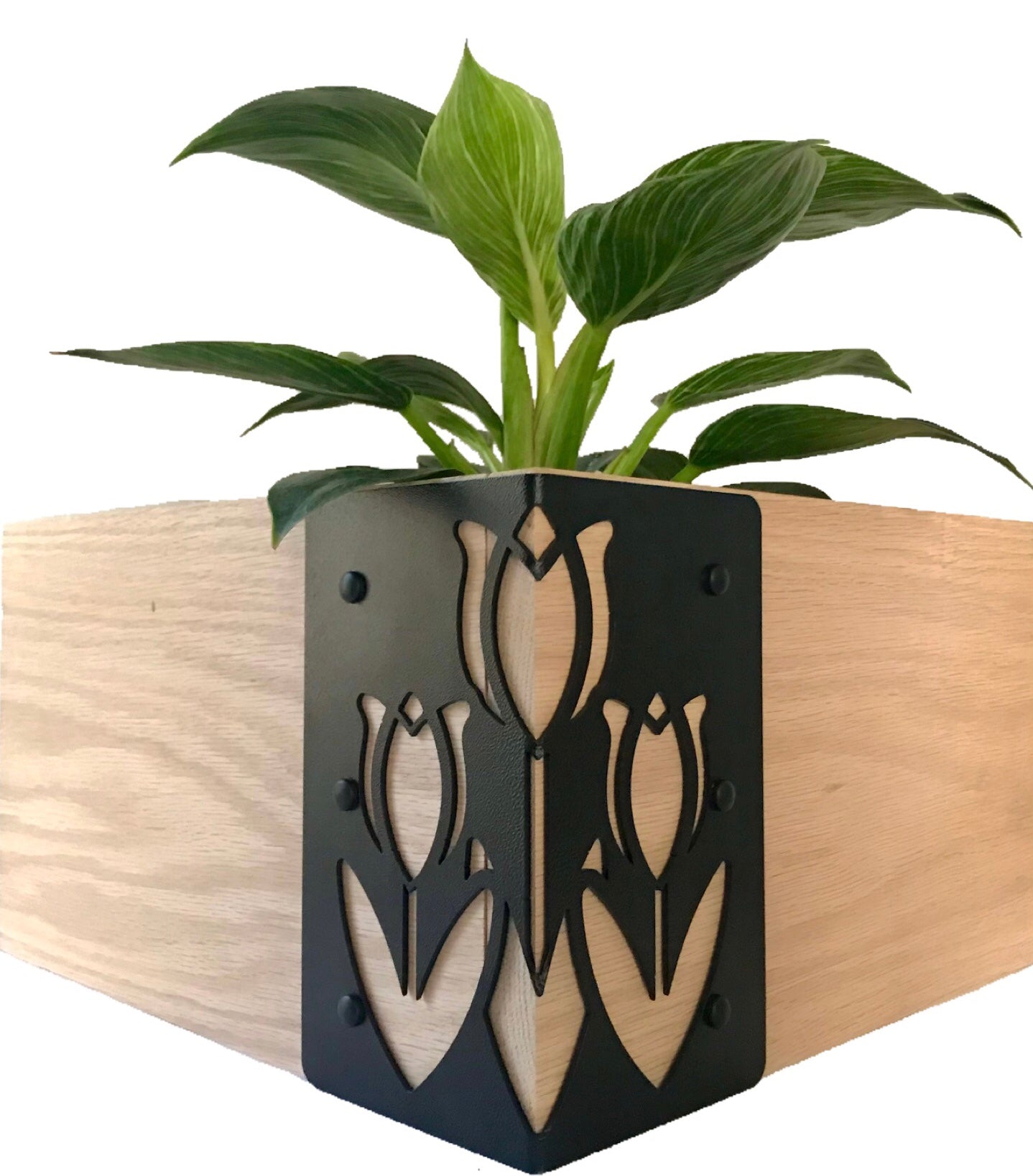
Why should I consider starting a raised bed vegetable garden?

Growing vegetables in a raised garden bed is not a new concept. Traditionally gardeners used to dig their beds from circular to rectangular mounds with sloppy edges.
Creating mounds is a standard gardening practice in areas that receive plenty of rainfall. These raised mounds help drain excessive water besides providing space for growing vegetables.
Growing vegetables in mounds are also amazing for many companion plantings, like vegetables that belong to the onion and carrots family. The carrots are planted on the flat top of the bed and enjoy the deep soil; on the other hand, leeks and onions planted on the sides protect the bed from pests.
The benefits of this practice are not limited to just that, and that’s why Gardeners are increasingly embracing raised vegetable gardening today, but with the new twist.
Solid frames have replaced the sloping edges of the conventional mounds to give beds a defined look. The framed beds can be made as high as you want and also prevents soil runoff during rainfall. We can also make these frames stronger by using certain accessories like raised bed corners.
There is a huge list of benefits that a raised garden bed offers to vegetable gardeners. Here we have mentioned just a few of the many reasons to use a raised bed in your yard:
Improve Soil
A raised garden bed allows you to add compost and other organic amendments to improve your garden soil. Soil amendments incorporated into the in-ground beds can fall away without the frame of a raised garden bed.
The already existing soil can have many problems like extreme sand, heavy clay, pH challenges, or construction fill. By adding a lot of organic matter, you can improve the quality of the soil quickly.
Manage Weeds Better
If you’re dealing with the problems of weeds in your yard, then raised vegetable beds can be the answer for you. Firstly, the raised bed soil is comparatively loose, so weeds come out easier when pulled.
Secondly, you can prevent weeds from growing in a raised vegetable bed by sheet mulching. For that, lay a sheet of cardboard in the bottom of your bed before filling it with soil to smother the weeds.
The frame around a raised garden bed keeps weeds and grass from creeping in from the surrounding area. This is almost impossible with in-ground beds, which need proper cleaning off the grass frequently from the edges.
Good Drainage
The best thing about having a raised garden bed is that it provides great drainage even in the heaviest of rainfall. This is one of the reasons for its popularity in the tropical areas that receive heavy rains.
As explained earlier, the soil in a raised bed is loose, which allows the rainwater to seep into the bed; it helps prevent quick runoff (a quick runoff is a huge reason for carrying away the fertile topsoil). Along with absorbing enough water, a raised bed allows excess water to drain out.
Usually, plants like to grow in moist soil, but many of them just hate wet feet. Too much water around their roots interferes with their breathing. And also, constant moisture around roots is a major cause of fungal and bacterial diseases.
Reduce Soil Compaction
The frame of raised garden bed works as a barrier that keeps kids, pets, and barnyard animals out.
It also encourages you to manage the bed while staying outside rather than stepping in. The biggest cause of soil compaction is foot traffic, which reduces aeration, and harms the soil life.
Compaction can also be caused by heavy rains, which pull down heavy soil particles as water drains from the site. In a raised garden bed, water drains effortlessly, so compaction is less of an issue.
Build on Existing Grass
For starting a new vegetable patch in the ground, we have to go through a lot of effort in digging up the turf and clearing out the sod. But we can directly construct a raised bed on top of the existing grass without disturbing it.
Just add a layer of newspaper or cardboard and fill the frame with the prepared soil. Then add the seeds or seedlings on the top surface. Gardening with the raised bed is almost like ergonomic gardening, which will save you from backbreaking work.
Stop the Slope
If you have a slope in your garden where you’re planning to grow vegetables, construct a raised garden bed as it will help in confining the soil in a frame and prevent it from washing away.
You can create raised beds on a slope in many creative ways, but no matter the kind of material you choose, make sure to build it on the level.
Extend the Growing Season
Because of the better drainage, the soil dries out and warms up faster in the spring in a raised vegetable garden. The faster warming up of soil allows early planting.
Many gardeners have also observed that a large number of plants overwinter in a raised bed, which they shouldn’t have been able to in the ground. And this is largely attributed to the quality of the soil used in a bed. If untilled and amended with compost, the soil will regulate temperature better than the tilled and nutrient-poor ground soil.
Provides Higher Yield
Growing vegetables in a raised garden bed provides a better production than growing on flat ground. The factors behind this are good soil aeration and intensive culture. In a raised garden bed, different vegetables are planted closer than you would in the flat ground.
The soil of raised beds is prepared according to our plants’ needs, so we can add more compost and organic matter that helps support more plants. Vegetables in a raised bed are expected to fill in the bed completely as they grow. And also, plants in beds are almost in controlled conditions, so they don’t have to compete with the weeds.
Growing your own organic vegetables is so important for a healthy diet. And raised vegetable beds provide a solution even if you have soil that’s not efficient enough. If you’ve never planted vegetables in a raised garden bed before, we promise that once you take this leap, you’ll be spoiled for the rest of your vegetable growing life, but that’s probably a risk you might be willing to take!







